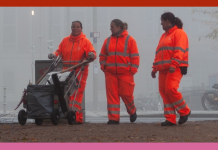Amy Robinson, senior brand development manager at Esendex, believes that the recruitment process could be changed forever, as it becomes more digitised. Here she looks at what businesses can do to adjust
At the start of the year, it was considered somewhat of a rarity for employees to be able to work from home. Those forward-thinking, technologically sound businesses were few and far between. Many businesses considered Zoom or Hangouts to be unsuitable communication channels for a business to function correctly. Fast forward to March and this all changed overnight. Lockdown restrictions forced office workers to set up camp in spare bedrooms, dining room tables and any corner of their home that they could find to quietly carry on with their job.
Undoubtedly, some businesses not already set-up for working from home will have struggled to find their feet and scrabbled to implement adequate technology to ensure direct communication with customers and their team could continue. However, 8 months down the line, most businesses have now fully adapted to this new way of working and many of the virtues have been praised. People are saving money by not having to commute to work, they have more time in the morning to fit in a quick workout or a calm cup of coffee while still benefiting from the camaraderie of an office with regular conversations over channels such as Hangouts, Slack or Zoom.
However, there is another key benefit emerging from this new form of remote working and that relates to the almost infinite pool of potential employees. With location no longer being a deal-breaker, many businesses are able to interview and hire candidates from anywhere in the country or indeed the world.
Recruitment agency Distinct has noticed a change in recruitment behaviour over the last few months. “Initially we found that businesses were reluctant to go ahead with making new hires as it meant not being able to meet candidates in person. However, our clients have quickly found that there are still effective ways to recruit and we have seen a huge shift in clients moving over to video-based interviews. Even when clients have the option for face to face interviews, the majority are still choosing to begin the process through an initial zoom meeting and over the last six months, over 40% of the placements we made have been entirely through video interviews”.
However, this isn’t the only element of the recruitment process that the pandemic has impacted. Below we discuss the 3 main areas of the recruitment strategy that COVID-19 has changed, potentially, forever.
Relationship building
Building a rapport with a recruiter is key for many people searching for a job. In days gone by, many candidates would have looked to meet their chosen recruiter in person and ensure that there was a clear understanding of the type of role and business they’re interested in. Today this close relationship needs to be mirrored online. There are several ways to do this:
-
Organise an online video call via a channel such as Skype
-
Send SMS Surveys to ensure that the pool of potential candidates are happy with this new form of communication, understand their job search status and gather any feedback for improvement
Preparation is key
Being well prepared is Glurcruit’s top tip for being successful at an interview. In life pre-COVID-19 this would have meant ensuring that the candidate is aware of the time, location and brief of the interview, however, Covid-19 has prompted a change. Now recruiters are having to also play the role of tech support in ensuring that their candidates not only know the time and brief of the interview but are also set-up with a strong internet connection and relevant video software installed.
For seasoned office workers, this should all come relatively naturally, but those unused to the digital world may struggle. Recent graduates or those changing careers may never have used these video software programmes before and so might be unaware of some of the potential pitfalls of online communication. Repetition is often key when it comes to important information and so recruiters are now looking for more ways that they can communicate these interview techniques and updates with their candidates.
-
Many recruiters are taking to traditional marketing practices such as How To or Top Tip videos and blogs. They are then sharing this information across their social media platforms in a bid to begin to change the perception and approach of candidates at interview.
-
They are also looking to send more personalised information to each candidate using SMS. This is often hailed as the most effective form of communication when it comes to open rates and visibility, with the average adult checking their phone every 12 minutes making it the perfect channel for interview reminders.
Consider the mental health and wellbeing of candidates
While mental health and wellbeing of the UK workforce has always been a consideration for businesses, it has become increasingly important in light of the pandemic. With financial anxiety growing, YourMoney.com states that two in five UK workers (40%) report increased worries about money in the wake of the coronavirus pandemic. For any employee to function to the best of their ability they need to be secure in their role and have a format to express and alleviate their anxieties. This is a new consideration for recruiters when looking for suitable candidates for a job vacancy. Without prying, they need to understand the importance and anxiety levels around certain work-related elements, to ensure that they are matching the candidate with the correct job, business and company culture.
The coronavirus pandemic has irrevocably impacted the way we do business and the recruitment industry is no different. With a struggling economy and mass unemployment, the role of quality and compassionate recruitment agency has never been more important. However, the key to success is communication and agility. The market is ever-changing, candidates’ requirements are becoming clearer, and in order to stay ahead of the curve and ride out this challenging period, recruiters need to be able to constantly adapt their approach and acquisition style, while also considering the human element of every job placement.











